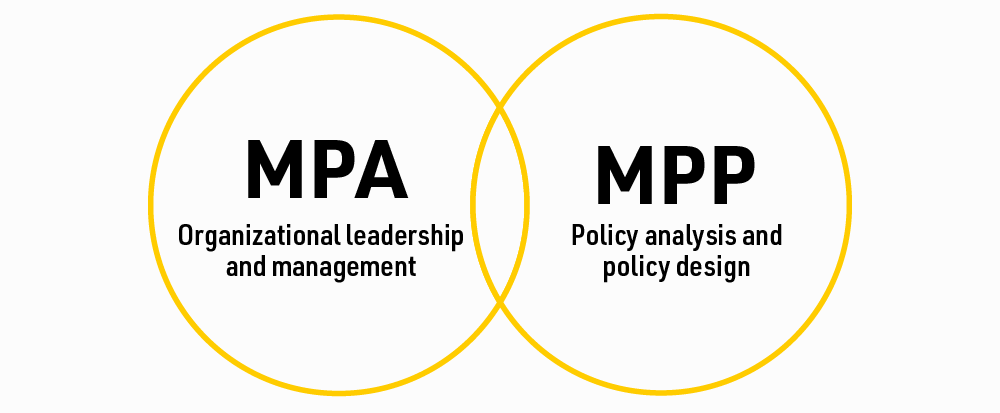MPA or MPP? What to know about the USC graduate programs
The USC Price School of Public Policy offers some of the nation’s top graduate programs for people seeking to make change for the common good. Those include our highly regarded Master of Public Administration (MPA) and Master of Public Policy (MPP) programs.
Whether you want to manage a city, craft policy on Capitol Hill, or work for a business or nonprofit improving communities around the world, both programs provide broadly applicable skills and experience. Still, there are some distinctions worth noting when deciding which program may be best for you.
Here’s what to know about the MPA and MPP programs at the USC Price School, the No. 3 ranked school for graduate programs in public affairs and administration.

Why get an MPA?
Put simply, this is a program that focuses more closely on organizational leadership and management.
The MPA program prepares students to become collaborative and innovative managers to lead complex organizations delivering public services or working in the nonprofit sector.
To help students become effective leaders, the MPA teaches enrollees how to manage teams, evaluate policy and design innovative strategies – skills needed to be an agent of change.
Why get an MPP?
The MPP emphasizes policy analysis and policy design.
The MPP program develops the analytical skills to examine existing policies, determine whether they’re effective, and design innovative, evidence-based solutions.
To help students become effective in the policy process, the MPP teaches a strong analytical skill set that draws from social sciences, such as political science and economics, and mixes that with different types of analysis and research methods.
What are the differences in curriculum?
The MPA program’s core courses teach the fundamentals of public administration and organizational behavior, as well as essential statistics and public financial management, just to name a few.
The MPP core courses teach the foundations and methods of policy analysis, public policy formulation and implementation, and multivariate statistical analysis, among others.
While the two degrees take distinctive approaches to teaching students to be effective change makers, both degrees provide skills that are appealing to many different employers and sectors.
For example, aspiring leaders in the MPA program learn analytic skills to determine whether administrative programs are working. Similarly, future policymakers in the MPP program obtain communication skills to explain policy ideas to stakeholders.
In addition, both programs allow students to specialize in policy areas of their interest, such as health or nonprofit policy, through elective courses that leverage the wide-ranging expertise at the USC Price School, as well as USC’s other schools.
And both programs provide practical experience through the MPA’s capstone and MPP’s practicum projects, which pair students with real-world clients working to improve people’s lives and communities.
Where do graduates find jobs?
Graduates of both programs land jobs across the public, private and nonprofit sectors – with both programs boasting a 98% job placement rate within a year of graduation.
MPP grads analyze data and design policy for a variety of organizations including San Francisco’s school district, the Government Accountability Office, and Deloitte. They lead district offices for members of Congress, run experiments to understand Latino voter engagement, and direct documentaries about policy, just to name a few examples.
Our MPA alumni, meanwhile, manage California cities, develop policy campaigns for social media giant Meta, and even run the National Endowment for the Arts.
Launched in 1929, our MPA program is one of the oldest in the country and has historically educated city and county managers. That tradition continues today through our City County Management Fellowship program. The MPP, meanwhile, has placed many people in federal jobs, from government agencies to Capitol Hill.
Both programs will prepare you for whichever path you choose to create change for the common good. Ready to make a difference? You can apply for our graduate programs here.